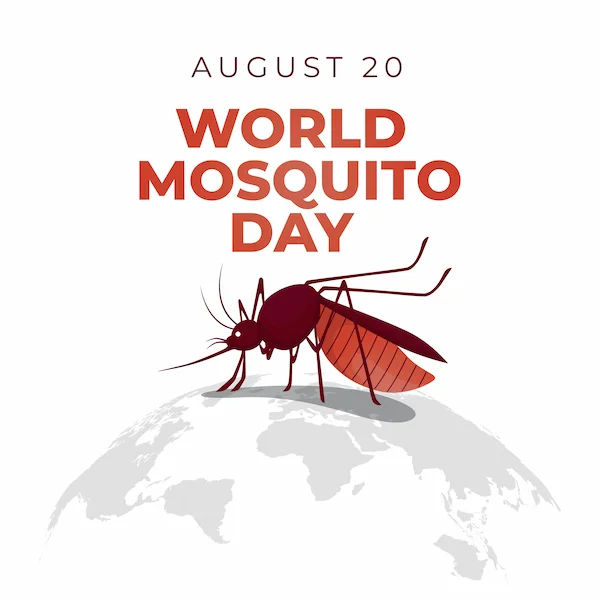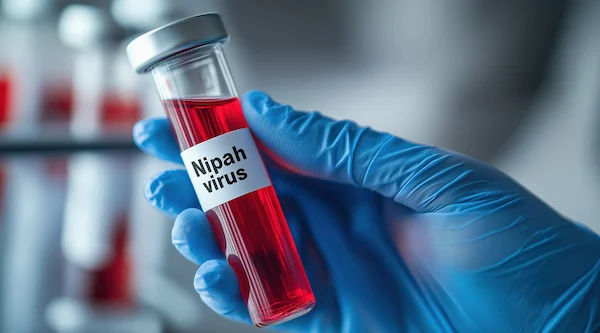Guide to Fever Children
A comprehensive guide for parents on how to handle fevers in children. Learn about the causes, symptoms, and safe ways to manage fever, including when to seek medical help.

Written by Dr. Dhankecha Mayank Dineshbhai
Reviewed by Dr. J T Hema Pratima MBBS, Fellowship in Diabetes Mellitus
Last updated on 13th Jan, 2026

Introduction
Watching your child battle a fever is a universal parenting experience, filled with anxiety and a desperate desire to help. That warm forehead and glassy eyes can send any parent into a spiral of worry. But here’s the most important thing to remember: fever is not the enemy. It is a sign that your child's immune system is working exactly as it should, mounting a powerful defense against an invading germ. This guide will demystify fever in children, moving you from a place of fear to a place of empowered confidence. We’ll cover everything from what a fever really is, to effective home care strategies, and the critical "red flag" symptoms that mean it’s time to call a doctor. Our goal is to equip you with the knowledge to provide comfort and make informed decisions for your little one.
What is a Fever? The Body's Natural Defense
A fever is a temporary increase in body temperature, often due to an illness. It's a physiological response triggered by the body's immune system. When white blood cells detect an invader like a virus or bacteria, they release chemicals that signal the brain to raise its internal thermostat. This higher temperature creates a less hospitable environment for germs and actually helps the immune system work more efficiently. So, while it can be distressing to see the numbers climb, a fever is a positive sign of a healthy, active immune system fighting the good fight.
Normal Temperature Ranges for Children
The definition of a "normal" temperature can vary slightly based on the method of measurement. A child's average normal temperature is around 98.6°F (37°C). Generally, a fever is defined as a temperature of 100.4°F (38°C) or higher.
How to Accurately Take Your Child's Temperature
Accuracy is key. The best method depends on your child's age:
Under 3 months: A rectal thermometer provides the most accurate reading, which is crucial for this vulnerable age group.
3 months to 4 years: Rectal (most accurate), tympanic (ear), or temporal artery (forehead) thermometers are good options. Axillary (armpit) readings are less reliable.
4 years and older: Oral, tympanic, or temporal artery thermometers are typically accurate enough.
Consult Top Specialists
Common Causes of Fever in Kids
Understanding the likely cause can help alleviate worry. Most childhood fevers are caused by common, self-limiting illnesses.
Viral Infections (The Most Common Culprit)
The vast majority of fevers in children are due to viral infections. These are not treatable with antibiotics and must run their course. Examples include:
The common cold or flu
Roseola (known for a high fever followed by a rash)
Hand, Foot, and Mouth Disease
Croup
COVID-19
Bacterial Infections (Less Common, Often More Serious)
Bacterial infections are less frequent but can be more severe and often require antibiotic treatment. Examples include:
Strep throat
Ear infections (otitis media)
Pneumonia
Urinary Tract Infections (UTIs)
Sinus infections
Other Causes: Teething, Immunizations, Overheating
Sometimes, a mild low-grade fever can be caused by teething. immunizations often cause a fever within 24-48 hours as the body builds immunity. Overheating from being bundled in too many clothes can also raise a child's temperature.
How to Treat a Fever at Home: Comfort is Key
Treatment isn't always about lowering the number on the thermometer. The primary goal is to make your child comfortable. If they are playing, drinking fluids, and resting relatively well, aggressive treatment may not be necessary.
Safe Use of Fever-Reducing Medications
When discomfort is significant, medications can help.
Acetaminophen (Paracetamol) Dosing Guide
Acetaminophen (e.g., Tylenol) can be used for children over 3 months. Dosage is based on weight, not age. Always use the measuring device that comes with the product—never a kitchen spoon.
Ibuprofen Dosing Guide
Ibuprofen (e.g., Advil, Motrin) can be used for children over 6 months. It is also weight-based. Ibuprofen should be given with food to avoid stomach upset.
Crucial Medication Safety Tips
Never give aspirin to a child or teenager due to the risk of Reye's syndrome.
Do not combine acetaminophen and ibuprofen unless specifically advised by a pediatrician.
Keep a log of what medication you gave and when to avoid accidental overdose.
Non-Medication Comfort Measures
Hydration: Offer plenty of fluids—water, diluted juice, oral rehydration solutions, or popsicles. This is more important than food.
Comfortable Clothing: Dress them in light, breathable clothing. Avoid over-bundling, which can trap heat.
Lukewarm Sponge Bath: A sponge bath with lukewarm (not cold) water can provide comfort. Never use ice or rubbing alcohol.
Rest: Encourage quiet activities and plenty of sleep to help their body heal.
Recognizing Red Flags: When to Call the Doctor
This is the most critical section. Trust your instincts. You know your child best. If you are concerned, always err on the side of caution and seek medical advice.
Emergency Warning Signs (Seek Immediate Care)
Go to the emergency room if your child:
Is under 3 months old with a temperature of 100.4°F (38°C) or higher.
Has a fever that repeatedly rises above 104°F (40°C).
Is lethargic, difficult to wake, or confused.
Is having trouble breathing or is breathing rapidly.
Has a seizure (febrile seizure).
Has a stiff neck, severe headache, or a purplish rash.
Shows signs of dehydration (no tears when crying, sunken eyes, not urinating for 8+ hours).
Symptoms That Warrant a Pediatrician Consultation
Schedule a visit or consult a doctor online with Apollo24|7 if:
Your child is under 2 years old and the fever lasts more than 24 hours.
Your child is any age and the fever persists for more than 3 days.
The fever goes away for 24 hours and then returns.
They have other concerning symptoms like ear pain, a sore throat, a rash, or vomiting/diarrhea that won't stop.
You have questions about medication dosage or your child's overall condition.
Debunking Common Fever Myths
Myth: A high fever will cause brain damage.
Fact: Fevers caused by infection alone almost never exceed 106°F (41.1°C) and do not cause brain damage. The underlying illness might, but the fever itself is not the danger.
Myth: You must "feed a cold, starve a fever."
Fact: The body needs fluids and energy to fight illness. Focus on hydration first, and offer easy-to-digest foods if your child is hungry.
Myth: Teething causes high fevers.
Fact: Teething might cause a very mild, low-grade fever. A high fever is due to an illness and should not be dismissed as "just teething."
Preventing Fevers and Keeping Kids Healthy
While you can't prevent all illnesses, you can reduce the risk.
Practice Good Hand Hygiene: Teach kids to wash their hands thoroughly and often.
Stay Up-to-Date on Vaccinations: immunizations protect against many serious fever-causing illnesses.
Maintain a Healthy Lifestyle: Ensure a balanced diet, regular exercise, and adequate sleep to support a robust immune system.
Avoid Close Contact: Try to keep your child away from obviously sick people.
Conclusion
Navigating your child's fever can feel overwhelming, but armed with the right information, you can be a calm and effective source of comfort. Remember, fever is a signal, not a failure. Focus on your child's behavior—their activity level, hydration, and alertness—more than the number on the thermometer. Use comfort measures and medications wisely to ease their discomfort, and always trust your parental intuition. When in doubt, or if any red flag symptoms appear, seeking professional medical advice is the safest course of action. If your child’s condition is concerning but not an emergency, you can quickly get expert guidance by consulting a pediatrician online with Apollo24|7 from the comfort of your home.
Consult Top Specialists
Quick Takeaways
Fever is a natural immune response and is often a positive sign.
Treat for comfort, not just to lower the temperature.
Hydration is more critical than food during a fever.
Always dose medication based on weight, not age.
For infants under 3 months, any fever requires immediate medical attention.
Trust your instincts—you know your child best.
When worried, seek professional advice from a pediatrician.
Consult Top Specialists

Dr. Vivek D
General Physician
4 Years • MBBS
Bengaluru
PRESTIGE SHANTHINIKETAN - SOCIETY CLINIC, Bengaluru

Dr. Anand Ravi
General Physician
2 Years • MBBS
Bengaluru
PRESTIGE SHANTHINIKETAN - SOCIETY CLINIC, Bengaluru

Dr. Harshendra Jaiswal
General Physician/ Internal Medicine Specialist
12 Years • MBBS , MD (General medicine)
Kolkata
108 DHANA DHANVANTARI Clinic, Kolkata
(25+ Patients)

Dr Syed Mateen Pasha
General Physician
2 Years • MBBS
Bengaluru
PRESTIGE SHANTHINIKETAN - SOCIETY CLINIC, Bengaluru

Dr. Syed Ismail Ali
General Practitioner
7 Years • MBBS
Hyderabad
Apollo 24|7 Clinic, Hyderabad
More articles from Fever
Frequently Asked Questions
1. What is considered a high fever for a child?
A temperature of 104°F (40°C) or higher is considered a high fever. While the height of the fever isn't always an indicator of severity, a high fever warrants a call to your doctor, especially if it doesn't respond to medication or is accompanied by other symptoms.
2. My child has a high fever but is still playing. Should I be worried?
A child's behavior is often a better indicator of illness than the thermometer. If your child is alert, smiling, drinking fluids, and interacting relatively normally, even with a high fever, it is often less concerning than a child with a lower fever who is lethargic and irritable.
3. How can I tell if my child's fever is caused by a virus or bacteria?
It can be difficult to distinguish without a medical evaluation. Generally, viral fevers are more likely to be accompanied by symptoms like a runny nose, cough, or general body aches. Bacterial infections may cause more localized symptoms like an earache, severe sore throat, or pain urinating. A doctor can perform tests for a definitive diagnosis.
4. What should I do if my child has a febrile seizure?
Stay calm. Gently place your child on their side on a soft, safe surface. Do not put anything in their mouth. Time the seizure. Most last less than a minute. After it stops, comfort your child and call your doctor immediately. For a first-time seizure, or if it lasts longer than 5 minutes, seek emergency care.
5. Is it safe to alternate between acetaminophen and ibuprofen?
This should only be done under the specific guidance of a pediatrician. If done incorrectly, it can lead to medication errors and overdose. It's generally safer and equally effective to stick with one medication at a time, ensuring doses are given at the correct intervals.




